What is the difference between refined oil and unrefined oil?
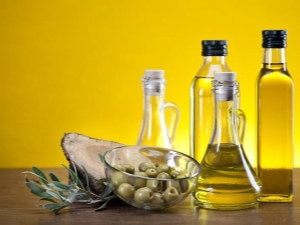
Various types of oils are widely used. Most of them are used in cooking when preparing dishes, and they are also used in cosmetology for skin and hair care and in traditional medicine. Today on the shelves you can find refined and unrefined oil (the word "refined" means "purified").
Product Similarities
For the production of vegetable oil, various raw materials are taken - these can be sunflower seeds, olive fruits, corn or rapeseed. Depending on the method of production, refined and unrefined oils are distinguished.
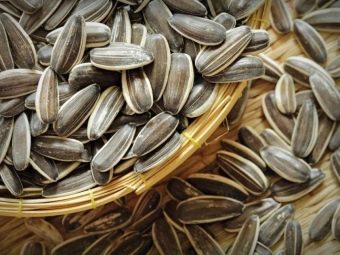

Both products have a common initial production scheme. It includes the following steps:
- purification of raw materials from mechanical impurities by separation in special equipment;
- crushing and peeling seeds from the husk (in the production of sunflower oil);
- crushing fruits on roller machines until mint is obtained;
- heating of the raw material and its subsequent supply to the screw pressing equipment;
- sedimentation and filtration.
Thus, unrefined oil is obtained. Finished products are bottled and sold. To obtain a refined product, unrefined oil undergoes further processing:
- heating to extract phosphatides;
- extraction of free fatty acids using a chemical method;
- deodorization - the process of removing pigment substances, carotenoids, volatile compounds and some other components;
- freezing - a process that ensures the complete removal of wax from the product.
This is how refined deodorized oil is obtained. The partial similarity of the purified and unrefined product lies in their composition. For example, both contain polyunsaturated fatty acids, vitamins, and nutrients. However, in a refined product, they are much less.


Fundamental differences
The difference between refined and unrefined oil is huge. Before being sold, the refined product undergoes multi-stage processing. The result is a light and transparent odorless liquid. It is worth noting that during purification, almost all valuable and nutritious components for the human body are removed from the oil. A clear liquid remains, which has a lubricating effect, softening properties and an anti-adhesive effect. In addition, the difference between refined oil and unrefined oil lies in some factors.
- In a more "commodity" form. The purified product has a light golden uniform color. Unrefined oil has a darker color, and during storage it may form a precipitate.
- In the absence of smell. Due to the deodorization process, the purified product completely loses its aroma, which is why it does not change the taste of dishes prepared with it. Unrefined oil with a smell can smell like seeds, corn, sesame (depending on the base used in the production). Due to the specific aroma, it is far from suitable for all dishes - most often it is used to prepare vegetable salads.
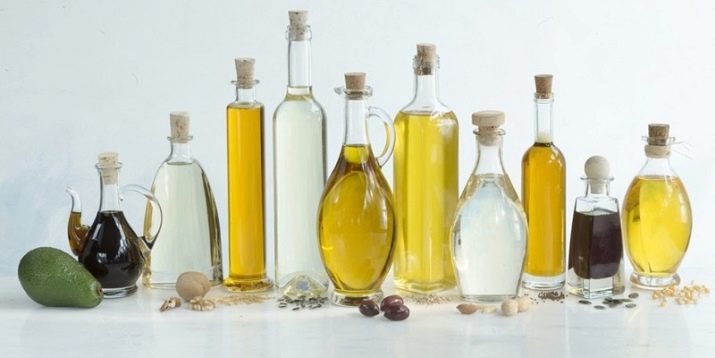
- In resistance to heat treatment. Refined oil is ideal for frying or deep-frying. An unrefined product is not recommended to be heated, because during thermal exposure it begins to foam and smoke, actively releasing carcinogens.
- In the loss of useful properties. Due to refining, almost all substances are removed from the product: both harmful and useful (vitamins, phosphatides, micro and macro elements, omega-3 and omega-6 acids). Of the advantages of refining, it can be noted that the purified product does not contain pesticides - substances harmful to human health, which are often used in the cultivation of crops.
In addition, refined oil has a longer shelf life. The purified composition is not afraid of exposure to sunlight or elevated ambient temperatures. It is intended for long-term storage in the refrigerator or at room temperature.
Unrefined vegetable fat has a short shelf life (up to 4 months in the refrigerator and up to 45 days at room conditions).


Which one is more useful?
Unrefined oil is more beneficial in its nutritional value than refined oil. It is enriched with nutrients and biologically active components. Due to its valuable composition, this particular product is widely used in cosmetology and traditional medicine. In cooking, it is used only for cooking cold dishes.
The benefits of unrefined sunflower oil when taken orally:
- restoration of the functioning of the central nervous system, improvement of the liver and digestion;
- increased immunity due to the antioxidants, vitamins, minerals and other beneficial substances contained in the crude oil;
- beneficial effect on brain cells and prevention of atherosclerosis;
- restoration of reproductive function;
- improvement of vascular elasticity and joint mobility;
- cleansing the liver of toxins and other harmful substances;
- improvement of metabolic processes;
- normalization of the endocrine system;
- improving the quality of blood composition;
- stimulation of the production of growth hormones, which is especially important for children and adolescents;
- normalization of the genitourinary system in women and men.


The regular inclusion of unrefined vegetable oil in food has a beneficial effect on the beauty and health of hair and skin.
In addition, the crude product is often used externally for face and hair care at home. Masks based on this component are able to restore curls, make them more “live”, smooth and silky. The use of oil for skin care helps to smooth out wrinkles, tighten the oval of the face and nourish the integument. As a result of regular use, dryness of the face is eliminated - it visually rejuvenates, acquires health and freshness.
Refined oil, compared to unrefined oil, does not have such benefits. However, it is an indispensable product for cooking fried, steamed or baked dishes. Refined vegetable oil is the best alternative to animal fats. With them, fried or baked food would be more harmful due to the high cholesterol content.
In addition, refined oil is often used externally for infant skin care. The fact is that this product is considered anti-allergenic, so it does not cause rashes, irritation and itching in children.

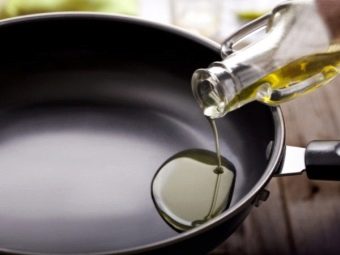
Harm of a refined product
The benefit of refined oil lies in its resistance to heat treatment, the absence of smell and taste. All this is possible due to the removal of free fatty acids, flavoring substances and other components from raw materials. But such a product cannot be called useful. Its harm outweighs its benefits. Below are the main disadvantages of the purified composition.
Chemical refining and heat treatment kill not only harmful substances in raw materials, but also useful ones. The result is an "empty" product, devoid of phosphatides, carotene, proteins and other components. The composition of natural oils is fundamentally different from those that have undergone a purification process. To carry out the refining process in production, specialized chemicals are used - hexane and gasoline. According to the technology, the product is further purified from these harmful substances. However, it is not possible to completely get rid of them.
The finished refined oil contains traces of hexane and gasoline. These substances are not excreted from the human body. Over time, they accumulate and lead to the formation of neoplasms.
Also, refined oil has a high calorie content. Due to the high energy value, excessive consumption of the product can lead to obesity, disruption of the liver, heart and other organs and systems of the body.

Application Tips
Refined and unrefined types of oils should be consumed inside no more than 2 tablespoons (including the content of the product in dishes). For a therapeutic effect, it is recommended to drink 1 tablespoon of the composition in the morning before breakfast - this will allow you to get rid of constipation as soon as possible.
To strengthen the gums and get rid of their bleeding, it is recommended to rinse the mouth with unrefined oil. To do this, you need to put it in your mouth and rinse for 10 minutes. This procedure should be repeated every morning for 14 days.
Unrefined oil can be used in home cosmetology. It is noteworthy that this tool is universal - it is suitable for owners of any skin type. Products based on unrefined oils are "soft", so they can be used even for sensitive skin and care for the eyelids and the area around the eyes.

In order for the external use of the oil to be effective, it is important to heed some recommendations.
- To care for dry and normal skin of the face and hands, unrefined oil should be added to the usual cream or masks. Such a composition will provide the removal of inflammation, smoothing wrinkles and softness of the skin. If the integument is prone to pore expansion, then it is best to use a refined product due to its lighter fraction.
- You can lubricate your lips with warm unrefined oil, using it as a balm. The tool will promote the healing of microcracks, as well as protect the lips from various viruses.
- To strengthen the nail plate, it is recommended to make warm hand baths based on unrefined oils.
- To strengthen or restore hair, heated oil is applied from the roots to the ends of the strands and rubbed with gentle massage movements into the scalp. The action of such home procedures is also aimed at accelerating the growth of curls.
- Vegetable oils are used for massages.They saturate the skin with nutrients that penetrate deep into the skin by heating the integument and improving blood circulation in them.
Unrefined oils have a valuable balanced composition, thanks to which they can become an alternative to store-bought cosmetic products.
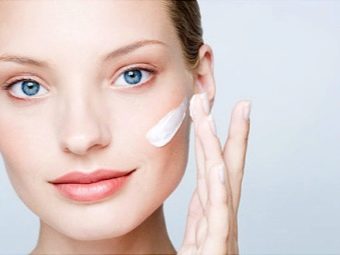

How to choose a quality oil?
Shop windows display many containers with refined and unrefined sunflower oils from various manufacturers. To choose the best quality of them, you should pay attention to several important factors.
- Goods expiration date. You should always look at the production date of the product and its expiration dates, and if you choose vegetable oil, this item should not be skipped. If the composition is close to the date of "delay", then it has a high peroxide value. Such a product has a bitter taste and acquires a specific smell. It should be noted that when storing oil in inappropriate conditions (for example, being under natural or artificial lighting, a significant excess of air temperature), its shelf life decreases.
- Oil purity. Before buying, you need to give a visual assessment of the quality of the goods. Turbidity and sediment in the purified product are unacceptable. These signs indicate non-compliance with the conditions of its storage and low quality. It is recommended to refuse such a purchase. Precipitation from unrefined oil is normal. The phospholipids contained in the crude product precipitate out. They are not synthesized by the body and come from food.
- Color. The more transparent the refined oil, the more deeply refined it has been. A quality product will have a light color. Crude oil has a darker and more saturated color.


- Location of oil storage. Before buying a product, it is important to pay attention to where it is stored. It is best to choose the composition in a darkened display case or get the container "from the outback". When exposed to artificial light or sunlight, the oil quickly loses its freshness and its beneficial properties declared by the manufacturer.
To keep the oil fresh for as long as possible, it is important to follow a few storage guidelines.
Refined and unrefined products are best kept in the refrigerator or in the kitchen cabinet. The optimum storage temperature is from 5 to 20 degrees. Refined oil can be stored longer than unrefined oil. The latter is desirable to use within 3-4 weeks after opening. The refined version retains its properties for a year and a half.
About which oil is better - refined or unrefined, see the following video.

















